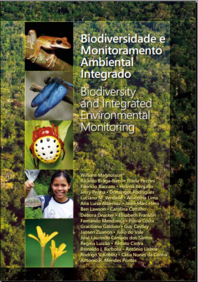
The Brazilian initiative PPBio (The Program for Research on Biodiversity) launches a new book based on over a decade of experience in implementing the biodiversity monitoring system RAPELD in the Brazilian Amazon. Richly illustrated and written in simple language, the book "Biodiversity and Integrated Environmental Monitoring" addresses the issues that led to the system development, covering topics such as the spatial organization and representation of biological diversity, environmental monitoring, and data management.
Monitoring of biodiversity is not merely an academic endeavor. Although scientific aspects such as representation of biodiversity and biodiversity data integration, management and preservation are of a great importance, it is also essential to think about the political context in which decisions will be made and how to incorporate political stakeholders and decision makers.
"As this important book makes clear questions about biodiversity are far from purely scientific. Biodiversity matters. Our needs to assess it embed in a complex of questions posed by managers, policy makers and those who live in or otherwise benefit from biodiversity.", explains Dr Stuart L. Pimm in the preface of the book. "So how do we ensure that data collected now will be useful for purposes we cannot yet imagine at some unexpected time in the future? Or provide comparison to some other place that we might survey some day?"
Those and many more questions regarding biodiversity data management and policy involvement are discussed in the new book "Biodiversity and Integrated Environmental Monitoring".




 RSS news
RSS news Please find the PDF of the book here.
Please find the PDF of the book here. Print this article
Print this article
